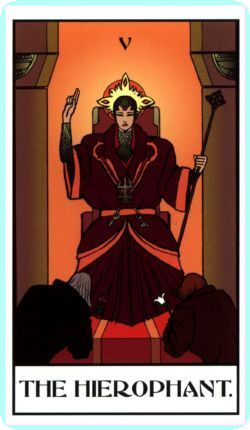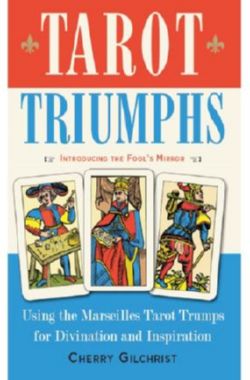This page is part of your finance tarot reading with the Mage Tarot Deck. If you are reading this page by accident you may prefer our Spirit Guide Quiz or if you looked for The Hierophant specifically try The Hierophant Mage Tarot Meaning. Love, Luck and Light to all!
 Finance, Money Matters Or Debt:
Finance, Money Matters Or Debt:
As with an upright meaning of this card, this is a time to play by the rules and to use down-to-earth, normal, traditional ways to handle your money. Gambling is not likely to pay off now in any form. Seek the advice of bankers and professional money managers and/or people with more experience dealing with money than you have. This is a good time for investments, provided they are conservative and stable. This is not a good time for taking chances with money or going for ‘unusual’ stocks, bonds, etc.
Card Meanings: Unconventional Relationships, Vulnerability, Unorthodoxy, Challenging Tradition, Foolish Generosity, Unconventionality, Frailty, Unconventional Lifestyles, Reversed Roles, Impotence
The Hierophant is very much about ‘doing the right thing.’ You may be struggling with an issue and are unsure about what is ‘right’ for you to do. Know that the answers are within you. Remember that the ‘right’ thing is what is right for you also.

This reading is part of a finance tarot reading using the The Hierophant using cards from the with the Mage Tarot Deck. You will find many more tarot pages that will be of great help if you need tarot card meanings. Use the search at the bottom of the page. We have some amazing tarot books for you to browse. Please see below.
Here are some snippets from a few of my favorite books

Book Details
Try our Love Horoscopes: Capricorn and Aquarius
Tarot Triumphs: I have kept the title Pope, however, rather than substitute the rather grandiose term Hierophant, which is sometimes used, or even High Priest. I feel that these take us too far away from the original meaning of a public figure of religious authority. The Pope is a figure we are all familiar with, even though he has limited impact in today’s world, compared to Renaissance Europe. As I have mentioned, the papal figures were too much for some Protestant regions, which replaced both cards with the classical deities Juno and Jupiter. I have retained the High Priestess, as the Grimaud pack does, rather than use versions such as the female pope or Papess, both odd and somewhat clumsy in English. Although female pope might match Pope as nomenclature, I believe that High Priestess represents her function better and is more in line with what was intended at the time, as we shall see shortly.
Tarot Triumphs: Here are some further ethical, practical, and philosophical considerations for you to reflect on. They are not set in stone, but they should help you to develop your Tarot practice in a mature and individual way.
- Feel free to drop us a line if you looked for The Hierophant Mage Finance Tarot Reading and you don’t see what you want. We would be glad to help. In the meantime checkout Tarot Reader.
Tarot Triumphs: I have always been drawn to divination. As a child, I diligently counted my prune stones after school pudding to see whom I would marry, and I gleefully made folding paper fortune-tellers, in which you could scrawl all kinds of possible fates for your friends. In my teens, the desire surfaced to know more about astrology, dream interpretation, and fortune-telling. This was before the new wave of interest in magical subjects, so there was not much material readily available. On holiday with a friend and her family, in a rented cottage in Wales, age thirteen, I pored over a moldy volume of dream interpretations that I’d found in the bookcase there, my chief entertainment during a week of rain. I begged to be allowed to take it home. Quite reasonably, my friend’s mother prevented me from doing so on the basis that the owner might be fond of the book herself. Later, I got my mother to buy me a fortune-telling teacup that we saw in a junk shopone where little card images are scattered on the china, to be interpreted through how the tea leaves fallthough I never did manage to work it out properly. As for astrology, at that time I could only find very superficial magazine columns to work out what sun signs my friends and I were born under. But I had a kind of instinctive feeling that this all made sense. I was less interested in knowing the future than in discovering how to penetrate this otherworld, the place from which these magical messages seemed to come.